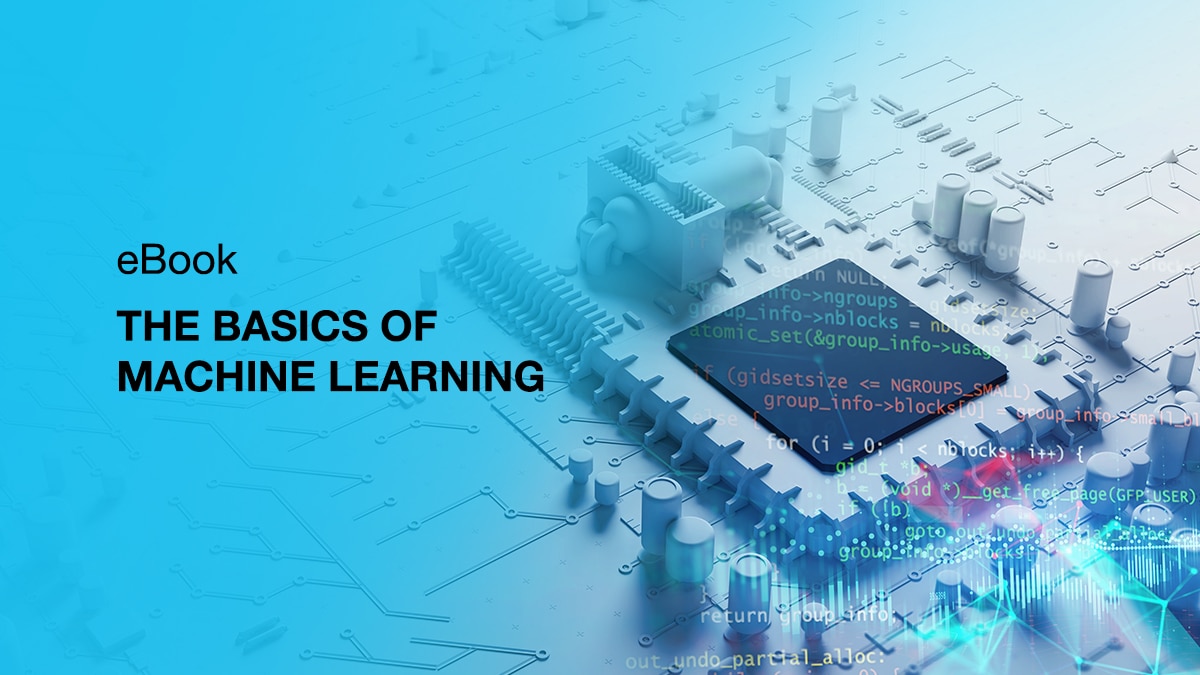
As artificial intelligence technology improves, it will have a measurable impact on virtually every industry. One of the main techniques in AI is machine learning, where systems learn and improve from experience, similar to humans, without being explicitly programmed. In this eBook, we’ll discuss how machine learning works, learn about the software driving it, and go over various applications that use it.
Preview from the First Chapter
Machine learning (ML) is a powerful tool that enables computers to learn from data without explicit programming. It is an important part of modern artificial intelligence (AI) technologies, such as speech and image recognition, natural language processing (NLP), and predictive analytics. With the increasing availability of computing resources enabling the analysis of vast amounts of data, machine learning can revolutionize the way we approach complex problems and has the potential to shape society’s future. This eBook covers the fundamentals of machine learning, including neural networks, TensorFlow, deep learning, machine learning workflows, and data preparation.
History
The history of ML dates back to the early 1900s, when mathematicians and scientists first explored mathematical models to analyze data. The field began taking shape in the 1950s and 1960s as researchers developed groundbreaking techniques for analyzing patterns and data. Machine learning experienced impressive growth through the 1970s and 1980s, with the development of new algorithms and models for interpreting and analyzing data. Artificial neural networks were also introduced during this time, drawing inspiration from the structure and function of the human brain.
As computing power advanced during the 1990s and new algorithms capable of handling large data sets emerged, ML began to be applied in various fields, such as finance, healthcare, and manufacturing. These advancements paved the way for the current applications of ML, which encompass a wide range of applications including self-driving cars, personalized advertising, predictive maintenance, and fraud detection. Although ML has demonstrated remarkable effectiveness in solving complex problems, it requires large amounts of data and computational power to train and refine models, making it more challenging to implement than traditional programming approaches.
When Do We Need Machine Learning?
ML is necessary when two aspects of a given problem require using programs that learn and improve based on their “experience.” These two aspects are the problem’s complexity and adaptivity.
Complexity
• Tasks Performed by Animals/Humans: Several tasks are too complex to program traditionally. Humans perform many regular tasks, such as driving, speech recognition, and image comprehension, which require analysis of many different types of information. These tasks require complex computations, which can change depending on the data received, making traditional programming ineffective. However, ML programs that learn from experience can achieve satisfactory results once exposed to a sufficient amount of training examples.
• Tasks beyond Human Capabilities: ML techniques are valuable for analyzing data sets that are too large and complex for humans to work with. In the modern world, virtually every industry produces large data sets that can be analyzed in search of information that can streamline processes. As more data become digitally available, it is increasingly apparent that valuable information is hidden within these archives. By detecting meaningful patterns and trends in these data sets, ML algorithms can unlock new insights. This promising field combines learning programs with the vast memory capacity and the ever-increasing processing speed of computers, opening up new uses for data analysis.
Adaptivity
Programmed tools can be inflexible and unable to adapt to changes. ML tools offer a solution to this problem and are designed to adapt to input data. These adaptive programs have successfully decoded handwritten text, detected spam emails, and recognized speech patterns. With their ability to adjust to changes, ML tools can provide more flexible and effective solutions to various problems

